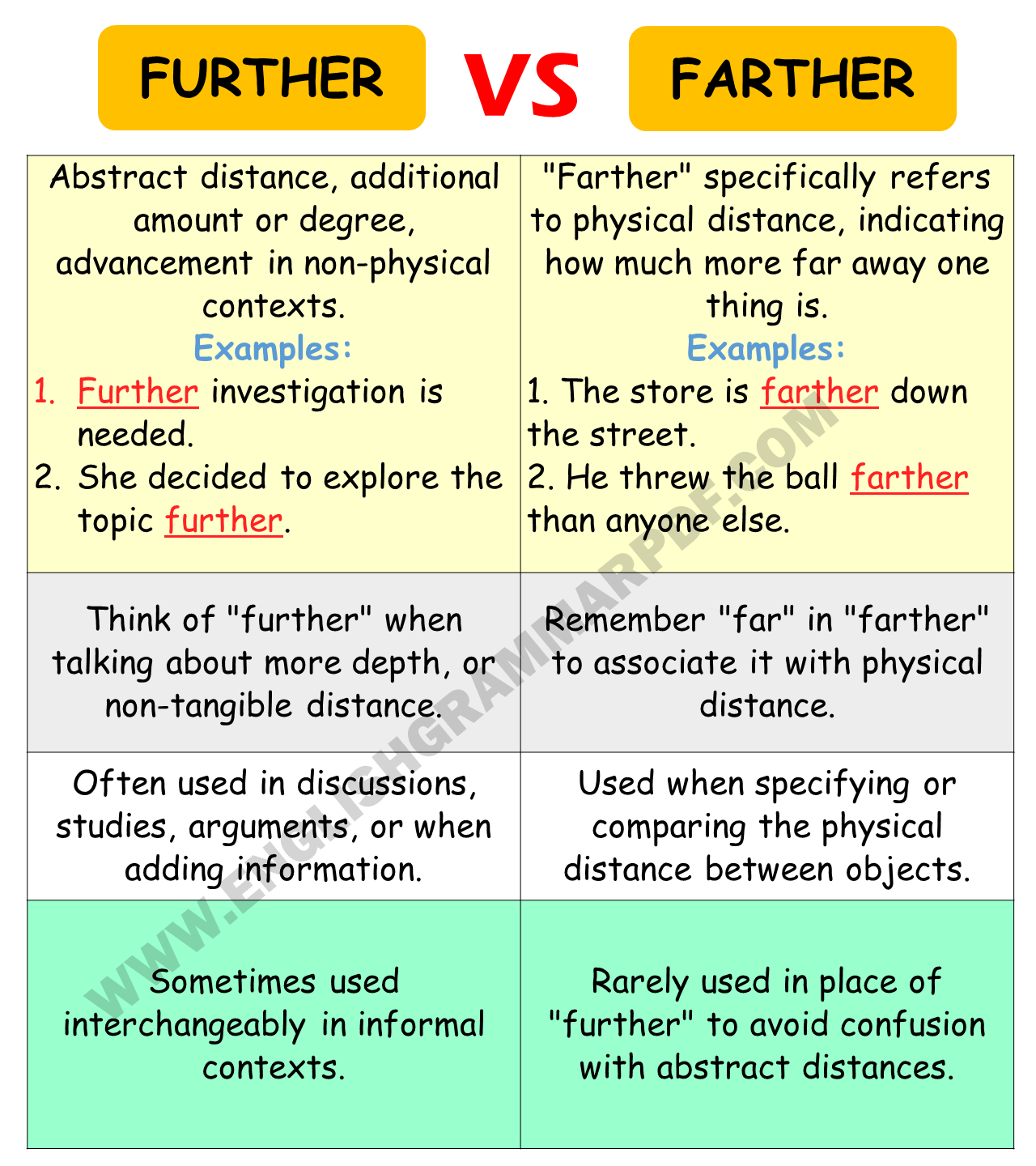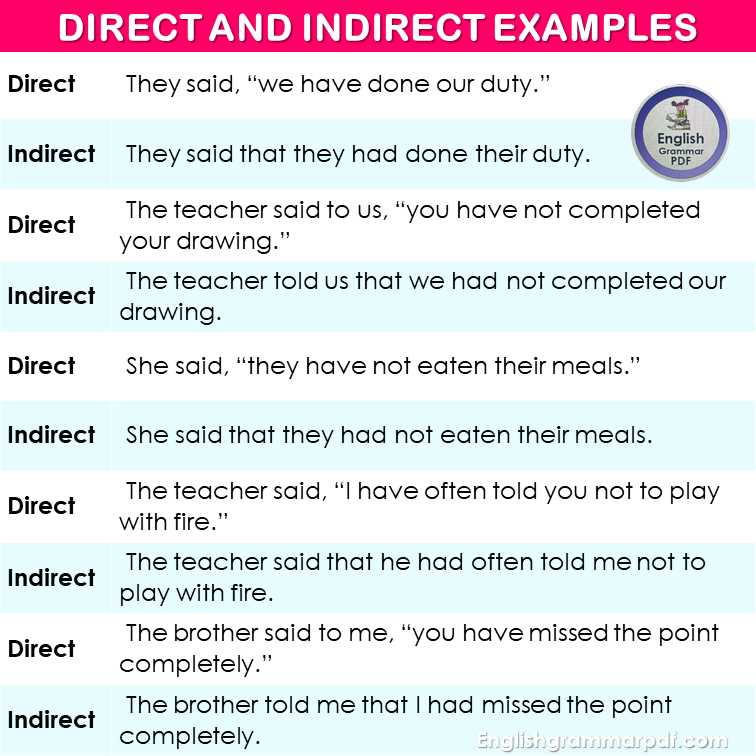Have you ever mixed up further and farther? You’re not alone! Many people learning English get confused by these two words. In this blog post, we’ll explore the difference between further and farther and learn how to use them correctly.
We’ll share easy tips and examples to help you understand when to use each word. So, if you want to sound like a pro in English, keep reading! This post is your key to mastering these tricky words.
FURTHER vs FARTHER! What’s the Difference?
The words further and farther both describe distance, but they are used in slightly different ways.
- “Farther” is used to talk about physical distance. It’s about how far something is. For example, if you’re talking about two parks and one is 5 miles away while the other is 10 miles away, you’d say, “The second park is farther than the first one”.
- “Further” is a bit more flexible. It can also talk about distance, but it’s often used for figurative distances, like in time or in an argument. For example, if you’re discussing a topic and want to go deeper into the subject, you might say, “Let’s explore this idea further”. It’s also used to mean additional in some cases like “I have no further questions”.
Comparison Table
| Further | Farther |
| Abstract distance, additional amount or degree, advancement in non-physical contexts.
Examples: – Further investigation is needed. – She decided to explore the topic further. – Further to our discussion, here are my points. |
Physical distance.
Examples: – The store is farther down the street. – He threw the ball farther than anyone else. – We walked farther than planned. |
| Think of “further” when talking about more depth, addition, or non-tangible distance. | Remember “far” in “farther” to associate it with physical distance. |
| Often used in discussions, studies, arguments, or when adding information. | Used when specifying or comparing the physical distance between objects or locations. |
| Sometimes, it is used interchangeably in informal contexts, though not recommended for clear communication. | Rarely used in place of “further” to avoid confusion with abstract distances. |
Also Consider Reading:

Let us discuss both in detail.
Use of Farther
i. Describing Physical Distances:
- The post office is farther down the road than I thought.
- Can you throw the ball any farther?
- We need to walk a little farther to reach the summit.
ii. Comparing Distances Between Two or More Locations:
- Of the two restaurants, the Italian one is farther from my house.
- The park is farther away than the library.
- Is the train station farther than the airport?
iii. Indicating Extension Beyond a Certain Point:
- We hiked farther into the forest than we planned.
- She could see farther into the horizon from the top of the hill.
- The telescope allowed him to look farther into space.
Each point focuses on the physical aspect of distance, whether it’s measuring length, comparing locations, or extending beyond a point, illustrating farther as the go-to choice for tangible distances.
Use of Further
i. Advancing to a Greater Degree or Extent in Non-Physical Contexts:
- We need to discuss this problem further to find a solution.
- He read further into the chapter to understand the concept better.
- I’ll investigate further to get more details on the topic.
ii. Introducing Additional Information or Points:
- Further to our conversation, I checked the data and found some discrepancies.
- I have no further questions after your thorough explanation.
- Further research is needed to confirm these findings.
iii. Indicating a Greater Distance in Time or Development:
- As technology advances further, we will see more changes in communication.
- This decision will push our project timeline even further.
- Her skills have developed further since she attended the workshop.
Each point showcases further being used in contexts that are metaphorical, abstract, or relating to time and development, rather than the physical distance emphasized by farther.


